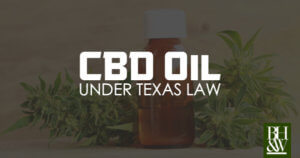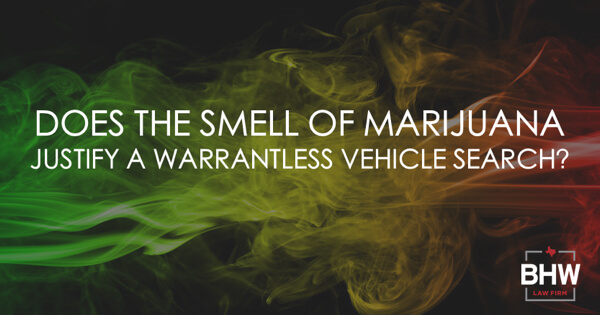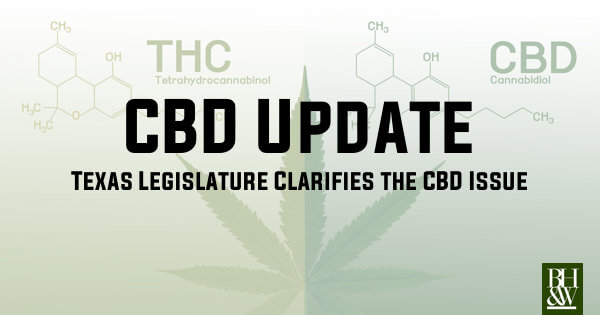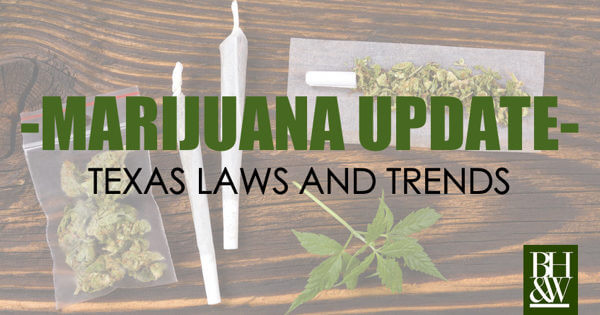What is CBD Oil?
 CBD Oil, which is short for cannabidiol oil, is a cannabinoid extract that is alleged to have the health benefits of cannabis (e.g. pain relief, easing of inflammation, anxiety management and the treatment of epilepsy) without the psychoactive effects of marijuana. CBD Oil is sold as a supplement in marijuana dispensaries, nutrition stores, and even as an additive in smoothies. While the popularity of CBD Oil is growing substantially, the product remains unregulated by the U.S. Food and Drug Administration, leading to wide discrepancies in the product’s ingredients and quality. The variety of ingredients and compounding methods may have significant ramifications for consumers depending on Federal and state law and the interpretation of those laws by state law and health code enforcement agencies.
CBD Oil, which is short for cannabidiol oil, is a cannabinoid extract that is alleged to have the health benefits of cannabis (e.g. pain relief, easing of inflammation, anxiety management and the treatment of epilepsy) without the psychoactive effects of marijuana. CBD Oil is sold as a supplement in marijuana dispensaries, nutrition stores, and even as an additive in smoothies. While the popularity of CBD Oil is growing substantially, the product remains unregulated by the U.S. Food and Drug Administration, leading to wide discrepancies in the product’s ingredients and quality. The variety of ingredients and compounding methods may have significant ramifications for consumers depending on Federal and state law and the interpretation of those laws by state law and health code enforcement agencies.
Is CBD Oil Legal Under Federal Law?
Yes, if it is produced within federal guidelines.
As of December 20, 2018, the Fed Gov has legalized hemp that has a tetrahydrocannabinol (THC) concentration of no more than 0.3% by removing it from Schedule I of the controlled substances act. States and Indian Tribes may regulate the production of Hemp by submitting a plan to the USDA. This bill also makes hemp producers eligible for the federal crop insurance program and certain USDA research grants.
With the passing of the new 2018 Farm Bill, hemp and hemp-derived products have been officially removed from the purview of the Controlled Substances Act, such that they are no longer subject to Schedule I status. Meaning that so long as CBD is extracted from hemp and completely pure (with less than 0.3% THC on a dry weight basis of THC, something the DEA doubts is possible) and grown by licensed farmers in accordance with state and federal regulations, it is legal as a hemp product.
However, in 2016 the Drug Enforcement Agency released an administrative ruling considering CBD Oil to be a Schedule One drug, comparable to heroin, peyote and LSD, operating on the theory that it is extracted from the same parts of the Cannabis sativa plant that contain THC, the active ingredient of marijuana. CBD consumers and manufacturers assert that CBD can also be extracted from the non-intoxicating parts of the Cannabis sativa plant that produce hemp, however, a recent 9th Circuit decision affirmed the DEA’s authority to classify CBD Oil as within their administrative purview.2
For CBD Oil to be considered legal in the Federal system under the DEA’s guidelines it must “consist[] solely of parts of the cannabis plant excluded from the CSA definition of marijuana.” In the definition of marijuana given by the Controlled Substances Act, the “mature stalks of such plant, fiber produced from such stalks, oil or . . . any other . . derivative, mixture, or preparation of such mature stalks” are excluded from the definition. Presently the DEA considers an extraction process using only the parts of the cannabis plant that are excluded from the CSA definition of marijuana to be “not practical.” This is because the extraction process used would “diminish any trace amounts of cannabinoids that end up in the finished product.”
Is CBD Oil Illegal Under the Laws of the Various Individual States?
Yes, CBD is legal, but not in all states.
At the state level, CBD Oil is considered legal in the states where marijuana is legal for recreational use (Alaska, California, Colorado, DC, Maine, Massachusetts, Nevada, Oregon, Vermont). Twenty-nine states have made marijuana legal for medical use in various quantities and CBD is also considered legal under those state laws, irrespective of the THC content of the source of the oil. In states that have not decriminalized marijuana, CBD Oil is also likely illegal.
Is CBD Oil Legal In Texas?
NO, unless you fall within the qualifications set by the Compassionate Use Act.
If you are prescribed the use of medical CBD oil and use ‘low-THC” CBD, then the use is legal. Texas has legalized marijuana for medical use only, but only in a very narrow set of circumstances. The Compassionate Use Act of 2015 authorizes the prescription of “low-THC cannabis,” defined as having no more than 0.5% THC for patients diagnosed with intractable epilepsy and entered into the state-maintained “compassionate-use registry.”3 The Act requires prescription by two physicians however, it is currently illegal under federal law for a physician to “prescribe” marijuana. Under a 2000 court ruling, it is legal for physicians to “recommend” marijuana to their patients but the language of the Compassionate Use Act calls for a prescription, setting up a conflict with Federal law.4 Additionally, to qualify for the medical use of CBD, the patient must have tried two FDA-approved drugs and found them to be ineffective. There are currently three dispensaries licensed by Texas to sell qualifying products to authorized consumers.
If you do not fall within the qualifications set by the Compassionate Use Act, then possession of CDB oil containing any amount of THC is against Texas law. The State definition of marijuana closely tracks the Federal definition. The Texas Health and Safety Code defines marijuana as “the plant Cannabis sativa . . . and every compound, manufacture, salt, derivative, mixture, or preparation of that plant or its seeds.” The Code excludes “the mature stalks of the plant or fiber produced from the stalks [and] a compound, manufacture, salt, derivative, mixture, or preparation of the mature stalks, fiber, oil.” Texas does not currently have legislation allowing for the cultivation of hemp, though industrial hemp derived from the mature stalks of the Cannabis sativa plant may be sold and consumed.
What is the Penalty for Possession of CBD Oil in Texas?
In Texas, if you possess CBD oil with any trace of THC, you could be charged with a Felony for Possession of a Controlled Substance in Penalty Group 2, which (depending on the weight in grams) can carry a range of punishment from 180 days in a state jail facility up to 20+ years in prison and a fine not to exceed $10,000. Several of our clients have been arrested for possessing CBD oil after officers performed a field test and discovered that yielded a positive result for THC.
If the CBD oil does not contain any THC, is it currently a Schedule V substance not in any penalty group. Possession of CBD with no THC can be charged as a Class B Misdemeanor with a punishment range of 0 – 180 days in jail and a fine up to $2,000.
What To Look For In CBD Oil In Texas
CBD Oil made from the mature stalks of the Cannabis sativa plant are likely in conformity with both Federal and Texas State law. Consumers seeking to purchase CBD Oil in Texas should look for a product advertised as being the product of “industrial hemp” or “mature hemp.” Products advertised as containing “THC” or “CBD Oil” should be avoided because of potential conflict with State and Federal laws.
- Texas consumers with intractable epilepsy may seek to join the Compassionate Use Registry and get a prescription for CBD Oil containing less than 0.5% THC from an authorized dispensary.
- Physicians should be mindful that “prescribing” CBD Oil to Texas residents under the Compassionate Use Act may fall into conflict with existing Federal law.
- Retailers that are not one of the three state-authorized dispensaries authorized by the Compassionate Use Act should take care to carry only products that do not advertise themselves as containing CBD Oil but instead focus on being the product of industrial hemp.
Where Can I Purchase CBD Oil with 0% THC?
While there are many CBD oil stores popping up all over Texas, we have found one near our office that sells CBD Oil with 0% THC in it. They test it to confirm the THC content so that you can be sure of what you are getting. Visit Your CBD Store at https://yourcbdstorekeller.com to learn more or purchase their CBD products online. But remember that even though many agencies are not choosing to arrest or prosecute for zero THC CBD oil, the Tarrant County DA’s office is still filing these cases if a person is arrested.
Sources:
- H.R.2642 – 113th Congress (2013-2014): Agricultural Act of 2014.
- Hemp Industries Association v. USDEA, No. 17-70162
- SB339 Texas Compassionate Use Program
- Conant v. McCaffrey WL 1281174










